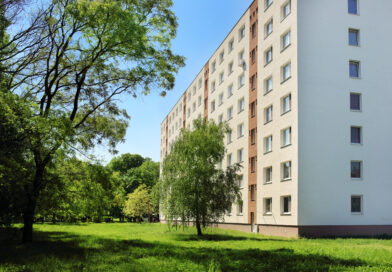Central European Office Investments to Outperform Several European Markets
Several Central European (CE) office markets are well placed to show above average occupational market performance in the short- to medium-term, not only compared to their Central and Eastern European (CEE) neighbours.
Also compared to several EU-15 markets. Core office properties in markets such as Poland, Hungary and Czech Republic have the potential to offer income generating characteristics at prices that are significantly more sustainable than one year ago, thereby presenting interesting opportunities for investors to (re-)enter these CEE property markets, according to CB Richard Ellis’ latest research, Risk, Return & Reality – CEE Office Property.
Negative sentiment surrounding CEE and a widespread perception that CEE markets are uniform in terms of property market risks have contributed to significantly lower property investment volume thus far in 2009. Such sentiment is justified with regard to certain parts of the region, while other parts of CEE have been unfairly swept up by it. CEE economies are not yet out of the woods, but recent forecasts are more positive for 2010 and 2011. Jos Tromp, Head of CEE Research, explains: “All CEE economies have been affected by the downturn, but the impact has not been uniform. Poland, for example, is still forecast to record positive economic growth in 2009, which would make it one of only a few European countries to do so. Moreover, prospects for recovery in 2010/11 are generally seen as better in CEE than Western Europe. The IMF recently forecast economic growth of 3.7% and 2.2% in Slovakia and Poland respectively in 2010, well above forecast growth of 0.3% in the EU-15. Hungary is considered by many analysts as an economy making the right steps towards its medium-term benchmarks. This would have positive effects on office markets across the region, including easing upward pressure on unemployment and limiting further downward pressure on rents.”
Investors are likely to find attractive office investment opportunities in CEE for a number of reasons: CEE economic growth is forecast to be higher than in Western Europe on average in 2010-2011, which is likely to have salutary effects on office markets. After a period of rapid growth, the CEE office market is moving to a more sustainable growth pattern. Core CE markets, Warsaw, Budapest and Prague have low pipeline development to stock ratios, which will stop the vacancy to rise further in the mid-term. Yield decompression in the last year across CEE has allowed yield spreads – which had disappeared or narrowed – to redevelop. This means that risk and return have returned to a more sustainable level in CEE.
“Investors’ confidence toward Hungary has improved over the last couple of months. – explained Tim O’Sullivan, Head of Capital Markets at CBRE Hungary. “Investment confidence has seen a return to the Hungarian financial markets, which is slowly trickling into real estate market as investors regain confidence in the sector. Many investors are now looking at properties more closely, with turnover expected to rise as sentiment improves, into 2010.”
































